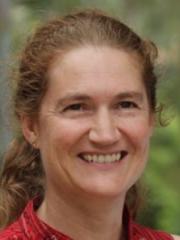Dr Belinda Hewitt

Doctor Hewitt is an Honorary Associate Professor at the Institute for Social Science Research, with interests in gender and the causes and consequences of life course and longitudinal transitions for individuals and families. Prior to her postdoctoral fellowship Doctor Hewitt was a PhD candidate in the School of Social Science at the University of Queensland and held various research assistant positions over that time.
Doctor Hewitt’s doctoral work systematically examined the gendered nature of the determinants of marital separation and which spouse initiates separation. During her postdoctoral work her research interests expanded into the longitudinal analysis of relationship and family transitions. A major theme of this work was to better understand how the social circumstances surrounding marriage dissolution (i.e. separation, divorce, widowhood) influenced health and household income. A second major research theme developed during her postdoctoral research examined the impact of family transitions on paid and unpaid labour in households, with Janeen Baxter and Michele Haynes,
In a project, with Professor Janeen Baxter, Doctor Hewitt is investigating contemporary understandings and meanings of marriage. Doctor Hewitt is also a Chief Investigator, with a major role in the management of the FaHCSIA funded evaluation of the Paid Parental Leave (PPL) scheme led by Professor Bill Martin. This project is investigating the immediate and intermediate outcomes of the introduction of the Governments PPL scheme for mothers’ health, employment and gender equity. In an NHMRC project with colleagues at the University of Melbourne, Doctor Hewitt is expanding this important work on Paid Parental Leave with a particular focus on the schemes impact on the mental health of young mothers.
Broadly, the key themes running through her work are gender differences in relationships and family dynamics and the use of longitudinal and life course approaches to understanding changes in families. Doctor Hewitt’s future research is going to focus on the consequences of changes in family structure and increasingly diverse family life pathways for mental and physical health and the extent these health consequences differ by gender, age, socioeconomic status and Indigenous status.
Research interests
- The causes and consequences of relationship dissolution
- Work, families and health
- Longitudinal and life course approaches to understanding relationship and family transitions and trajectories
- The gendered nature of relationships and families
